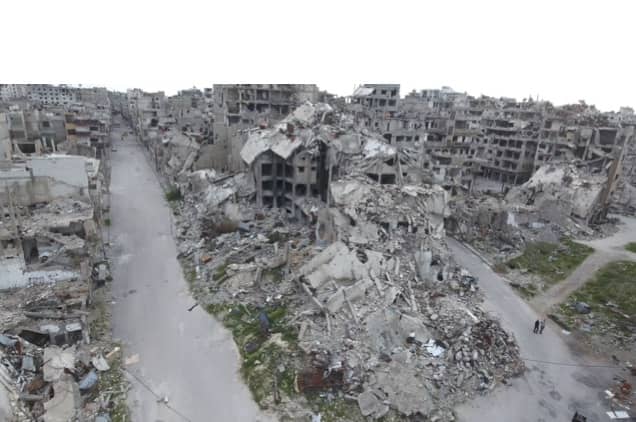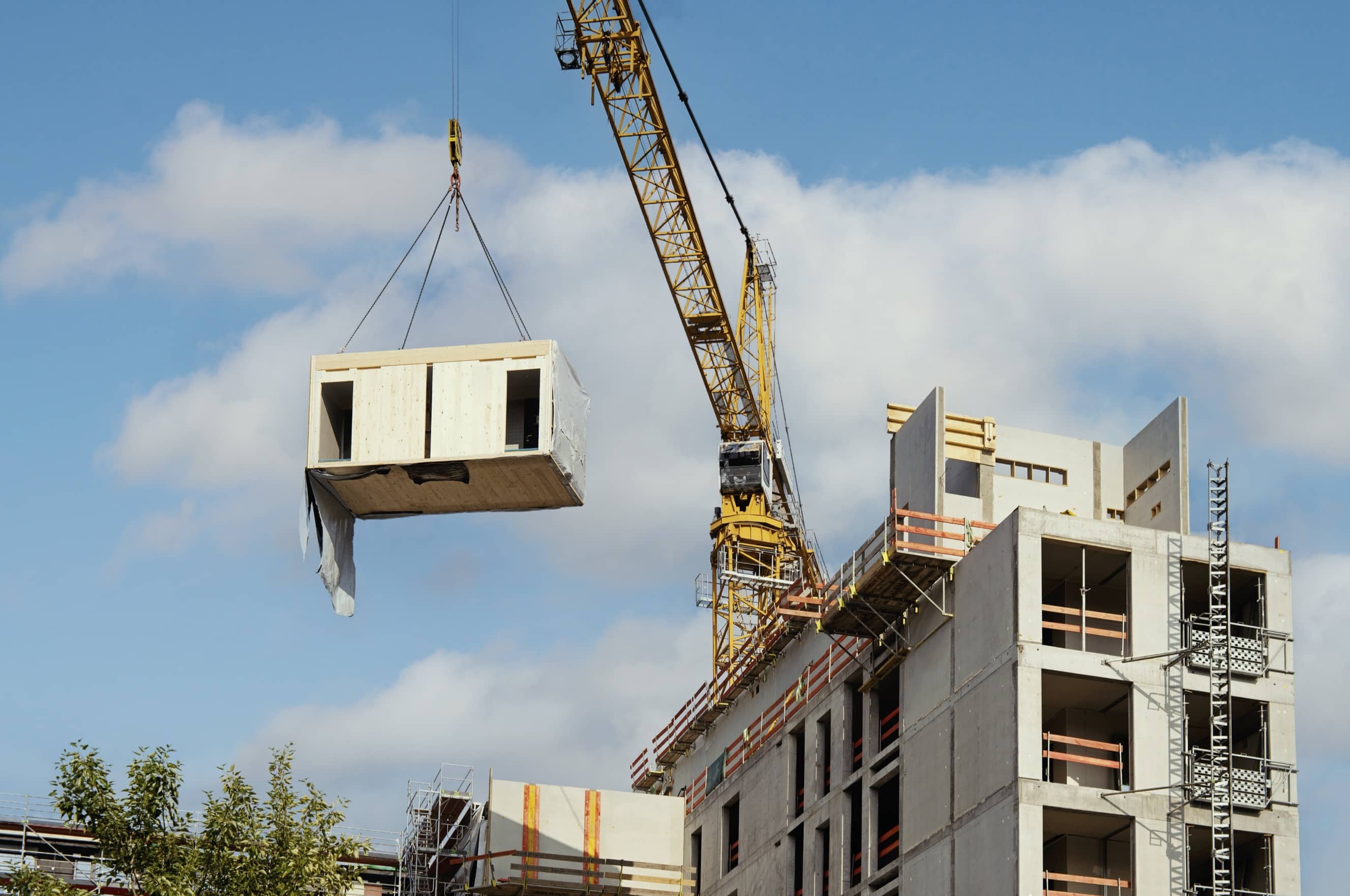
How can conditions be created for decent living standards for all without exceeding planetary limits?
Energy and climate policies have tended to focus on the promotion of energy efficiency and renewable energies, but there is no evidence that these measures alone will be able to meet climate and sustainable development goals. This special issue explores what the concept of sufficiency means for the built environment - both as a floor (minimum) and a ceiling (maximum) to ensure a "good life". Sufficiency is explored in many interconnected issues such as land use and density, space usage (size and adaptability), sharing of goods, services and spaces, and space conditioning (heating, cooling and ventilation) for health.
More
How do indoor environments affect health inequalities, inequities and injustice?
Health inequalities are a crucial aspect of public health and a pressing societal challenge. Access to healthy indoor spaces that are optimised to promote health should be seen as a fundamental right for all. This special issue is a starting point for the built-environment and public health communities to identify many existing inequities in order to improve methodological approaches, share vocabularies between disciplines, and create new knowledge necessary to create a safe and healthy indoor environments for all. Equitable design could translate into prioritising air quality improvements in the homes of people suffering from respiratory conditions, introducing inclusive design elements for disabled people, or providing energy retrofit subsidies to low-income, fuel-poor households.
More
Guest editors: Nicola Antaki, Doina Petrescu & Vera Marin
Deadline for abstracts: 10 February 2025 (noon GMT)
What are the roles and impacts that living labs play in increasing civic resilience and supporting ecological transition in different contexts and at different scales?
This special issue examines the roles that living labs have in creating or enhancing resilience in local communities. What mediation methods are used in the different stages of collaboration? How can success or efficacy be measured? What lessons arise about transferability between different labs / situations? What inventive methodologies are developed/used in living labs within different contexts and at different scales?
More
Why a just transition to sustainable cities depends on quality, affordable housing
As city populations grow, a critical current and future challenge for urban researchers is to provide compelling evidence of the medium- and long-term co-benefits of quality, low-carbon affordable housing and compact urban design. Philippa Howden-Chapman (University of Otago) and Ralph Chapman (Victoria University of Wellington) explain why systems-based, transition-oriented research on housing and associated systemic benefits is needed now more than ever.
More
Why urban innovation is not enough to create sustainable cities
Andrew Karvonen (Lund University) explains why innovation has limitations for achieving systemic change. What is also needed is a process of unmaking (i.e. phasing out existing harmful technologies, processes and practices) whilst ensuring inequalities, vulnerabilities and economic hazards are avoided. Researchers have an important role to identify what needs dismantling, identify advantageous and negative impacts and work with stakeholders and local governments.
More
The destruction of cultural heritage is a war crime. Should peacetime destruction or displacement be a crime too?
Civil society is understandably horrified by catastrophic loss of cultural, societal and historically important architecture and communities during wartime. But when this happens more piecemeal or by less visibly aggressive means in peacetime, we seem able to ignore it, even where it occurs at scale. Ian Cooper argues that greater protection needs to be provided to built environment and to the people who live there to avoid their displacement.
More
Observations from 15 years of built environment reuse research about how change occurs
Satu Huuhka (Tampere University) reflects on why the needed changes in practice are often slow and difficult in the building sector even when proved beneficial. Overcoming this inertia and accelerating widespread change requires a coordinated multi-level approach. The research agenda must not only be to produce new technology and practices but also to facilitate its uptake. This calls for understanding and addressing societal structures and collective behaviours: regulation and policy, market and industry structures and infrastructures, as well as education and culture.
More
Partnering with NGOs and integrating local knowledge can enable researchers to develop effective and context-specific solutions
In rapidly urbanising countries across the Global South, the demand for more adequate housing and sustainable energy solutions has never been more urgent. Minna Sunikka-Blank (University of Cambridge) explains why new partnerships and local knowledge integration of research in the Global South are needed. Specifically, there is a need for non-traditional partners to engage in research, such as non-governmental organizations (NGOs).
More
Why research funders, institutions and academics need to frame research agendas that are locally responsive
Samuel Laryea (University of the Witwatersrand) considers the contribution of researchers in developing countries to the discourse in Q1 journals. Common themes are evident in both developed and developing regions. However, publications from African countries appear to only partially address prevalent issues in the region, with limited publications that explore local contexts.
More
Highlights from the 2024 COP29 conference in Baku
Matti Kuittinen (Aalto University) reflects on the UN’s 29th Climate COP, leaving a sense of disappointment and frustration among delegates and observers. The event yielded a commitment of only $0.3 trillion for climate funding, falling drastically short of the $1.3 trillion requested by developing nations. COP29 saw the broader recognition of the role of the built environment – including the launch of the International Council for Buildings and Climate (ICBC).
More
Challenges ahead: why urban planning and urban design need robust quantitative evidence for decision making.
While some progress has been made, particularly in areas like healing architecture where the impact of design on human well-being is more directly observable, much work remains to be done to extend evidence-based design to broader fields of architecture, urban planning and design. Meta Berghauser Pont (Chalmers University of Technology) explains the challenges and pathways needed for a shift toward evidence-based design in urban planning and urban design.
More
Challenges ahead: why robust research and education can help drive the necessary changes in regulating construction products to meet society's demands
Mustafa Selçuk Çıdık (University College London) considers the crucial role that research and higher education need to play in generating evidence and knowledge to shape the complex landscape of construction product regulations, particularly in relation to innovation, safety and performance. Independent, robust research and clear guidance are needed to ensure public safety, technological progress and sustainability. In addition, higher education must prepare future professionals to work within, and critically challenge, these regulatory frameworks.
MoreEndorsements
Latest Peer-Reviewed Journal Content
Spatiotemporal evaluation of embodied carbon in urban residential development
I Talvitie, A Amiri & S Junnila
Energy sufficiency in buildings and cities: current research, future directions [editorial]
M Sahakian, T Fawcett & S Darby
Sufficiency, consumption patterns and limits: a survey of French households
J Bouillet & C Grandclément
Health inequalities and indoor environments: research challenges and priorities [editorial]
M Ucci & A Mavrogianni
Operationalising energy sufficiency for low-carbon built environments in urbanising India
A B Lall & G Sethi
Promoting practices of sufficiency: reprogramming resource-intensive material arrangements
T H Christensen, L K Aagaard, A K Juvik, C Samson & K Gram-Hanssen
Culture change in the UK construction industry: an anthropological perspective
I Tellam
Are people willing to share living space? Household preferences in Finland
E Ruokamo, E Kylkilahti, M Lettenmeier & A Toppinen
Towards urban LCA: examining densification alternatives for a residential neighbourhood
M Moisio, E Salmio, T Kaasalainen, S Huuhka, A Räsänen, J Lahdensivu, M Leppänen & P Kuula
A population-level framework to estimate unequal exposure to indoor heat and air pollution
R Cole, C H Simpson, L Ferguson, P Symonds, J Taylor, C Heaviside, P Murage, H L Macintyre, S Hajat, A Mavrogianni & M Davies
Finnish glazed balconies: residents’ experience, wellbeing and use
L Jegard, R Castaño-Rosa, S Kilpeläinen & S Pelsmakers
Modelling Nigerian residential dwellings: bottom-up approach and scenario analysis
C C Nwagwu, S Akin & E G Hertwich
Mapping municipal land policies: applications of flexible zoning for densification
V Götze, J-D Gerber & M Jehling
Energy sufficiency and recognition justice: a study of household consumption
A Guilbert
Linking housing, socio-demographic, environmental and mental health data at scale
P Symonds, C H Simpson, G Petrou, L Ferguson, A Mavrogianni & M Davies
Measuring health inequities due to housing characteristics
K Govertsen & M Kane
Provide or prevent? Exploring sufficiency imaginaries within Danish systems of provision
L K Aagaard & T H Christensen
Imagining sufficiency through collective changes as satisfiers
O Moynat & M Sahakian
US urban land-use reform: a strategy for energy sufficiency
Z M Subin, J Lombardi, R Muralidharan, J Korn, J Malik, T Pullen, M Wei & T Hong
Mapping supply chains for energy retrofit
F Wade & Y Han
Operationalising building-related energy sufficiency measures in SMEs
I Fouiteh, J D Cabrera Santelices, A Susini & M K Patel
Promoting neighbourhood sharing: infrastructures of convenience and community
A Huber, H Heinrichs & M Jaeger-Erben
New insights into thermal comfort sufficiency in dwellings
G van Moeseke, D de Grave, A Anciaux, J Sobczak & G Wallenborn
‘Rightsize’: a housing design game for spatial and energy sufficiency
P Graham, P Nourian, E Warwick & M Gath-Morad
Implementing housing policies for a sufficient lifestyle
M Bagheri, L Roth, L Siebke, C Rohde & H-J Linke
The jobs of climate adaptation
T Denham, L Rickards & O Ajulo
Structural barriers to sufficiency: the contribution of research on elites
M Koch, K Emilsson, J Lee & H Johansson
Life-cycle GHG emissions of standard houses in Thailand
B Viriyaroj, M Kuittinen & S H Gheewala
IAQ and environmental health literacy: lived experiences of vulnerable people
C Smith, A Drinkwater, M Modlich, D van der Horst & R Doherty
Living smaller: acceptance, effects and structural factors in the EU
M Lehner, J L Richter, H Kreinin, P Mamut, E Vadovics, J Henman, O Mont & D Fuchs
Disrupting the imaginaries of urban action to deliver just adaptation [editorial]
V Castán-Broto, M Olazabal & G Ziervogel
Building energy use in COVID-19 lockdowns: did much change?
F Hollick, D Humphrey, T Oreszczyn, C Elwell & G Huebner
Evaluating past and future building operational emissions: improved method
S Huuhka, M Moisio & M Arnould
Normative future visioning: a critical pedagogy for transformative adaptation
T Comelli, M Pelling, M Hope, J Ensor, M E Filippi, E Y Menteşe & J McCloskey
Nature for resilience reconfigured: global- to-local translation of frames in Africa
K Rochell, H Bulkeley & H Runhaar
How hegemonic discourses of sustainability influence urban climate action
V Castán Broto, L Westman & P Huang
Fabric first: is it still the right approach?
N Eyre, T Fawcett, M Topouzi, G Killip, T Oreszczyn, K Jenkinson & J Rosenow
Social value of the built environment [editorial]
F Samuel & K Watson
Understanding demolition [editorial]
S Huuhka
Data politics in the built environment [editorial]
A Karvonen & T Hargreaves














Latest Commentaries
Systems Thinking is Needed to Achieve Sustainable Cities
As city populations grow, a critical current and future challenge for urban researchers is to provide compelling evidence of the medium- and long-term co-benefits of quality, low-carbon affordable housing and compact urban design. Philippa Howden-Chapman (University of Otago) and Ralph Chapman (Victoria University of Wellington) explain why systems-based, transition-oriented research on housing and associated systemic benefits is needed now more than ever.
Unmaking Cities Can Catalyse Sustainable Transformations
Andrew Karvonen (Lund University) explains why innovation has limitations for achieving systemic change. What is also needed is a process of unmaking (i.e. phasing out existing harmful technologies, processes and practices) whilst ensuring inequalities, vulnerabilities and economic hazards are avoided. Researchers have an important role to identify what needs dismantling, identify advantageous and negative impacts and work with stakeholders and local governments.